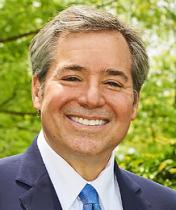Abstract
At a Bio-Terrorism Conference at Case Western Reserve University School of Law on March 31, 2006, the government participants were asked what they would do if a superior instructed them not to disclose information to the public about the likely grave health affects of an ongoing bio-terrorist attack. In response, they indicated that they would be reluctant to become a "whistleblower." This is not surprising since, despite the federal and state laws that purport to facilitate such whistleblowing for the public good, government whistleblowers routinely have faced loss of promotion, harassment, firing, and in some instances criminal prosecution when they have gone public with their important information. Yet, without government whistleblowers who had the courage to go to the press, the public would never have learned about Watergate, the Iran-Contra scandal, the inhumane practices at Abu Ghraib prison in Iraq, the secret prisons run by the United States in Eastern Europe, or the NSA policy of wiretapping Americans without warrants. These disclosures initiated vital public debate and prompted corrective actions and reforms. The authors argue that the government whistleblower who in good faith discloses information to the press should no longer be treated as an enemy of the state, and provide a legislative proposal to give them a greater degree of protection from retaliation than exists under current legislation.
Keywords
Whistle-blowing, terrorism, retaliation, Abu Ghraib, CIA Black Sites, NSA Domestic wiretapping, Model Rules of Professional Conduct, Model Rule 1.6, Model Rule 1.6(b), Civil Service Reform Act, Merit Systems Protection Board, Whistleblower Protection Act, Garcetti v. Ceballos
Publication Date
2007
Document Type
Article
Place of Original Publication
Case Western Reserve Journal of International Law
Publication Information
38 Case Western Reserve Journal of International Law 567 (2007)
Repository Citation
Scharf, Michael P. and McLaughlin, Colin T., "On Terrorism and Whistleblowing" (2007). Faculty Publications. 1060.
https://scholarlycommons.law.case.edu/faculty_publications/1060

